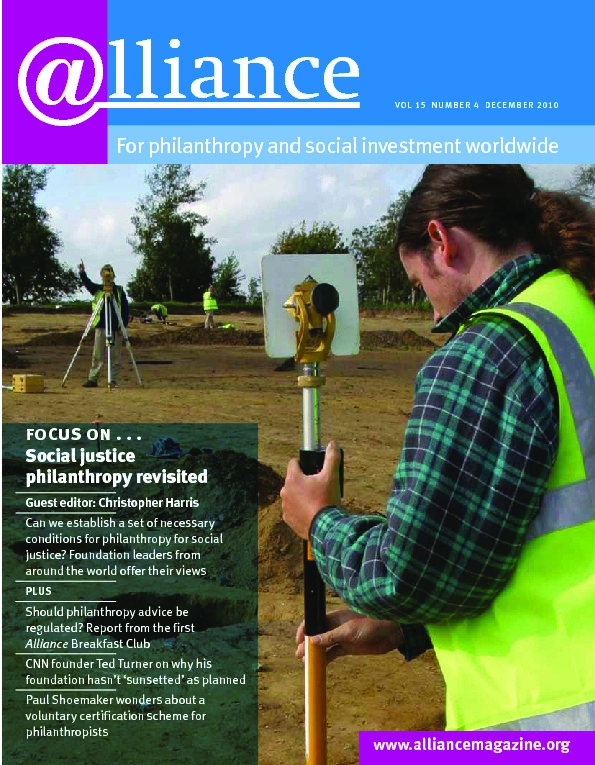On 30 September 2010, the UN Human Rights Council (UNHRC) adopted a resolution to create a UN Special Rapporteur to respond to alerts, provide recommendations, and otherwise respond when the freedoms of association and assembly are under threat.
The resolution is the latest result of a campaign launched by the International Center for Not-for-Profit Law (ICNL) in response to the so-called ‘associational counter-revolution’ (Alliance, September 2006), a tendency that has become increasingly apparent since 2004 for states to enact legislation to constrain civic space – and what’s more to share notes on how to do this most effectively.
As the counter-revolutionary trend gained momentum, over 50 countries considered or enacted measures to restrict civil society or cross-border philanthropy – restrictions that impeded organizations seeking to advance gender equality, public health, economic development, and myriad other objectives.
ICNL’s campaign in response has scored some striking successes. September’s UN landmark resolution, co-sponsored by 63 countries, is arguably the most important. Prior to this, the freedom of association was the only freedom enumerated in the Universal Declaration of Human Rights that did not enjoy broad protection under the UN’s human rights machinery. Among other responsibilities, the Special Rapporteur is tasked with collecting national practices on the rights to freedom of assembly and association, making recommendations to protect these rights, supporting technical assistance, and reporting on violations ‘wherever they may occur’.
Also significant was the establishment last year of a cross-sectoral Working Group on Enabling and Protecting Civil Society. This was established by the Community of Democracies, which includes over 100 member states. Civil society representatives from ICNL, Article 19, CIVICUS and the World Movement for Democracy also participate in this initiative. The Working Group is developing a series of ‘tools’, including an ‘alert’ mechanism, a technical assistance programme, and a system to coordinate diplomatic responses.
A multilateral working group was in fact one of the recommendations developed by ICNL after a meeting with world leaders attending the 2006 UN General Assembly. The UN meeting also led to a report cataloguing constraints and articulating international norms protecting civil society. This was prepared by ICNL and the World Movement for Democracy, under the auspices of the Dalai Lama, Archbishop Tutu, Vaclav Havel and other civil society leaders.
One of philanthropy’s ‘blind spots’
As long as the ‘associational counter-revolution’ remains a serious threat, such campaigns will continue to be necessary. ICNL’s campaign was made possible only by the support of private donors. However, as Bruce Sievers points out in a recent article called ‘What Civil Society Needs’ (SSIR, Fall 2010), support to protect and strengthen the institutional structures of civil society is one of ‘philanthropy’s blind spots’.
Most donors adopt what he calls an ‘instrumentalist’ approach and tend to focus on ‘headline-grabbing problems’ such as climate change and poverty. As Sievers cogently argues, this approach undermines the ability of civil society organizations to fulfil their mandate of mobilizing citizen action and addressing the major challenges the world faces. Only a handful of foundations support work on the legal framework for civil society. This lack of support undermines the ability of civil society organizations to effectively tackle the very issues that dominate the philanthropic agenda today.
Finally, the resolution is not a panacea for the problems facing civil society. The impact of the resolution will depend on who is selected as Special Rapporteur and whether countries constructively engage with this person. So, while it is an important step forward, impact will depend on implementation and further engagement.
Doug Rutzen is president and CEO of ICNL. Email drutzen@icnl.org
Filiz Bikmen Bugay is vice chair of ICNL and manager of programs at the Sabanci Foundation in Turkey. Email filiz@sabancivakfi.org
Click here for information on CIVICUS’s new Civil Society Watch Online.






Comments (0)